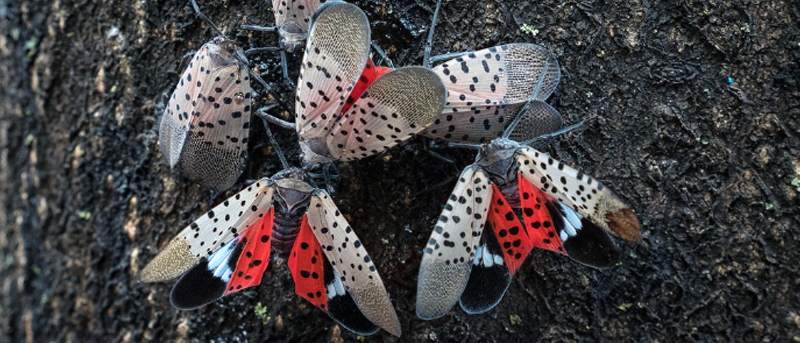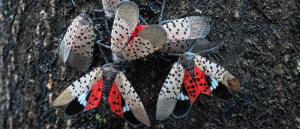How Fleets Can Easily Remove Crash Preventability Off CSA Scores
CNS can help with our Roadside & Incident Report Management service where a team of DOT Compliance Specialists will assess the Department of Transportation safety records
We are a team of DOT Compliance and Licensing Professionals helping trucking and transportation companies remain safe, compliant, and profitable.
CNS or Compliance Navigation Specialists is DOT Compliance company that assists trucking and transportation companies remain DOT Compliant. We are part of a network of companies, CNS Companies, specializing in services related to the transportation, manufacturing, construction, service, education and medical industries.

A full-scale DOT Compliance Program managing a long haul carrier’s safety, compliance, licensing and more.
Learn more >>>
A DOT Compliance Program that keeps motor carriers compliant with the 6 Basic DOT Regulations required of all carriers.
Learn more >>>
Our Short-Haul/Construction Program is a full-scale program designed for private carriers that do not haul for-hire.
Learn more >>>
Our most comprehensive DOT Compliance Program, operating as your company’s off-site Safety Director or assisting your current safety personnel.
Learn more >>>
Our Non-CDL Program is a full-scale program managing safety, compliance, licensing and more for moving companies, couriers, landscapers, or any company subject to DOT regulations and does not employ CDL drivers.
Learn more >>>
Our DOT Audit Services cover a number of different types of DOT Audits that new and existing carriers will be subject to.
Our DOT Driver Services help trucking companies and carriers to stay compliant as they grow and hire more drivers.
Our DOT Vehicle Services focus on ensuring your vehicles are compliant with DOT Regulations, which is just as important as your drivers.
Our DOT Services for Special Carriers focus on companies outside of the typical motor carrier, like HAZMAT, Passenger and Bus Carriers.
CNS is part of a group of companies that offer other necessary services for the trucking and transportation industry, such as Commercial Trucking Insurance, CDL Training, Online Training Course, and even Healthcare.
Our DOT Licensing Services will cover you whether you are an existing company or just starting a trucking company. Our DOT Licensing Specialists can help you get up and running and in days with your DOT number, MC Authority, EIN, UCR, IFTA, 2290 HVUT, Fuel Taxes and can even set you up to get your Commercial Driver's License (CDL) with CNS Driver Training Center.
Our DOT Licensing Specialists will help you with every aspect of starting a trucking company. All you need to do is choose a name for your trucking company.
You will need to ensure your DOT Number, MC Authority, Vehicle Registration, etc. is all set up properly when you start your trucking business.
Our Licensing Specialists can help with all aspects of filing and renewing licenses, fuel taxes, etc.
CNS is part of a group of companies that offer other necessary services for the trucking and transportation industry, such as Commercial Trucking Insurance, CDL Training, Online Training Course, and even Healthcare.
CNS can help with our Roadside & Incident Report Management service where a team of DOT Compliance Specialists will assess the Department of Transportation safety records
CNS or Compliance Navigation Specialists is DOT Compliance company that assists trucking and transportation companies remain DOT Compliant. We are part of a network of companies, CNS Companies, specializing in services related to the transportation, manufacturing, construction, service, education and medical industries.
CNS Companies is a network of companies specializing in services related to the transportation, manufacturing, construction, service, education and medical industries. Our DOT Compliance division is handled by Compliance Navigation Specialists, CNS Insurance handles Commercial Truck Insurance, CDL training is managed by the CNS Driver Training Center and healthcare is managed by CNS Occupational Medicine.
We are a team of DOT Compliance and Licensing Professionals helping trucking and transportation companies remain safe, compliant, and profitable.
CNS or Compliance Navigation Specialists is DOT Compliance company that assists trucking and transportation companies remain DOT Compliant. We are part of a network of companies, CNS Companies, specializing in services related to the transportation, manufacturing, construction, service, education and medical industries.

A full-scale DOT Compliance Program managing a long haul carrier’s safety, compliance, licensing and more.
Learn more >>>
A DOT Compliance Program that keeps motor carriers compliant with the 6 Basic DOT Regulations required of all carriers.
Learn more >>>
Our Short-Haul/Construction Program is a full-scale program designed for private carriers that do not haul for-hire.
Learn more >>>
Our most comprehensive DOT Compliance Program, operating as your company’s off-site Safety Director or assisting your current safety personnel.
Learn more >>>
Our Non-CDL Program is a full-scale program managing safety, compliance, licensing and more for moving companies, couriers, landscapers, or any company subject to DOT regulations and does not employ CDL drivers.
Learn more >>>
Our DOT Audit Services cover a number of different types of DOT Audits that new and existing carriers will be subject to.
Our DOT Driver Services help trucking companies and carriers to stay compliant as they grow and hire more drivers.
Our DOT Vehicle Services focus on ensuring your vehicles are compliant with DOT Regulations, which is just as important as your drivers.
Our DOT Services for Special Carriers focus on companies outside of the typical motor carrier, like HAZMAT, Passenger and Bus Carriers.
CNS is part of a group of companies that offer other necessary services for the trucking and transportation industry, such as Commercial Trucking Insurance, CDL Training, Online Training Course, and even Healthcare.
Our DOT Licensing Services will cover you whether you are an existing company or just starting a trucking company. Our DOT Licensing Specialists can help you get up and running and in days with your DOT number, MC Authority, EIN, UCR, IFTA, 2290 HVUT, Fuel Taxes and can even set you up to get your Commercial Driver's License (CDL) with CNS Driver Training Center.
Our DOT Licensing Specialists will help you with every aspect of starting a trucking company. All you need to do is choose a name for your trucking company.
You will need to ensure your DOT Number, MC Authority, Vehicle Registration, etc. is all set up properly when you start your trucking business.
Our Licensing Specialists can help with all aspects of filing and renewing licenses, fuel taxes, etc.
CNS is part of a group of companies that offer other necessary services for the trucking and transportation industry, such as Commercial Trucking Insurance, CDL Training, Online Training Course, and even Healthcare.
CNS can help with our Roadside & Incident Report Management service where a team of DOT Compliance Specialists will assess the Department of Transportation safety records
CNS or Compliance Navigation Specialists is DOT Compliance company that assists trucking and transportation companies remain DOT Compliant. We are part of a network of companies, CNS Companies, specializing in services related to the transportation, manufacturing, construction, service, education and medical industries.
CNS Companies is a network of companies specializing in services related to the transportation, manufacturing, construction, service, education and medical industries. Our DOT Compliance division is handled by Compliance Navigation Specialists, CNS Insurance handles Commercial Truck Insurance, CDL training is managed by the CNS Driver Training Center and healthcare is managed by CNS Occupational Medicine.

Warm spring weather is just around the corner, and that means Spotted Lanternfly nymphs will begin hatching. This typically happens around mid-May, so there’s still time for two important projects – scraping egg masses and getting your circle traps ready.
Egg masses can literally be anywhere, as the adult lanternfly are pretty sneaky! Good places to look are on trees along the edges of forested land, on wooden or metal posts, the underside of patio furniture and in the wheel wells of vehicles that might not have moved over winter.
In March, Agriculture Secretary Russell Redding announced that eight counties have been added to Pennsylvania’s Spotted Lanternfly quarantine zone, which now includes 34 counties, ahead of the 2021 spring hatch.
Spotted Lanternflies can potentially hitch a ride on products and vehicles, thus moving into a new area and spreading the infestation. So, businesses who ship products inside and out of quarantined zones are required to have a Spotted Lanternfly Permit.
These permits demonstrate the businesses have working knowledge of this pest and the best practices to prohibit its spread.
Every Pennsylvanian needs to keep their eyes peeled for signs of this bug, scrape every egg mass, squash every bug, and report every sighting.
The new eight counties include:
Last spring Pennsylvania quarantined 12 counties with isolated infestations, and those counties have not been overrun because of the heightened awareness a quarantine brings. With continued aggressive treatment and monitoring, and an actively engaged community, we can help ensure families and businesses in these new counties are not inconvenienced by widespread infestation.

Currently the following counties are under quarantine in Pennsylvania:
There are also quarantine counties or zones in the states of Delaware, Maryland, New Jersey, New York, and Virginia.
If you suspended inspections during the winter months, April 1st marks the day to begin inspections for the year.
Check out the program FAQs for more details.
All Pennsylvania SLF permit holders should have a permit with an 11-digit permit number preceded by PA, e.g. PA-20190400045.
Permits are free, but online training is required to obtain them. Managers and/or supervisors who demonstrate working knowledge and understanding of this insect and the quarantine requirements may obtain a permit.
A renewal notice and a replacement paper permit were sent to all permit holders who were originally issued hangtags and/or decals. If you have not received your paper permit, please email slfpermit@pa.gov.
If you have not received your permit or gone through the required training, CNS is trained on the Spotted Lanternfly Permit requirements.
When driving in and out of quarantined areas, drivers should inspect vehicles before moving. Other tips for avoiding unintentional spread of this insect include these strategies:
CNS is trained on the Spotted Lanternfly Permit requirements from the PA Department of Agriculture. We offer training for your drivers to identify and help contain and eventually stop the spread of this insect.
The CNS course is a 35-45 min training. Please note a supervisor from your company will still be required to take the permitting course from the Penn State Extension Website.

8 Counties Added To PA Spotted Lanternfly Quarantine for Spring 2021 Updated 7/7/2020: New Permit Renewal Information A renewal notice and a replacement paper permit
Our DOT Compliance Programs ensure it is your top priority and keeps your business running.
Receive the latest transportation and trucking industry information about FMCSA and DOT Audits, Regulations, etc.

8 Counties Added To PA Spotted Lanternfly Quarantine for Spring 2021 Updated 7/7/2020: New Permit Renewal Information A renewal notice and a replacement paper permit
Join our monthly newsletter and stay up-to-date on trucking industry news and receive important compliance and licensing tips.
Join our monthly newsletter and stay up-to-date on trucking industry news and receive important compliance and licensing tips.